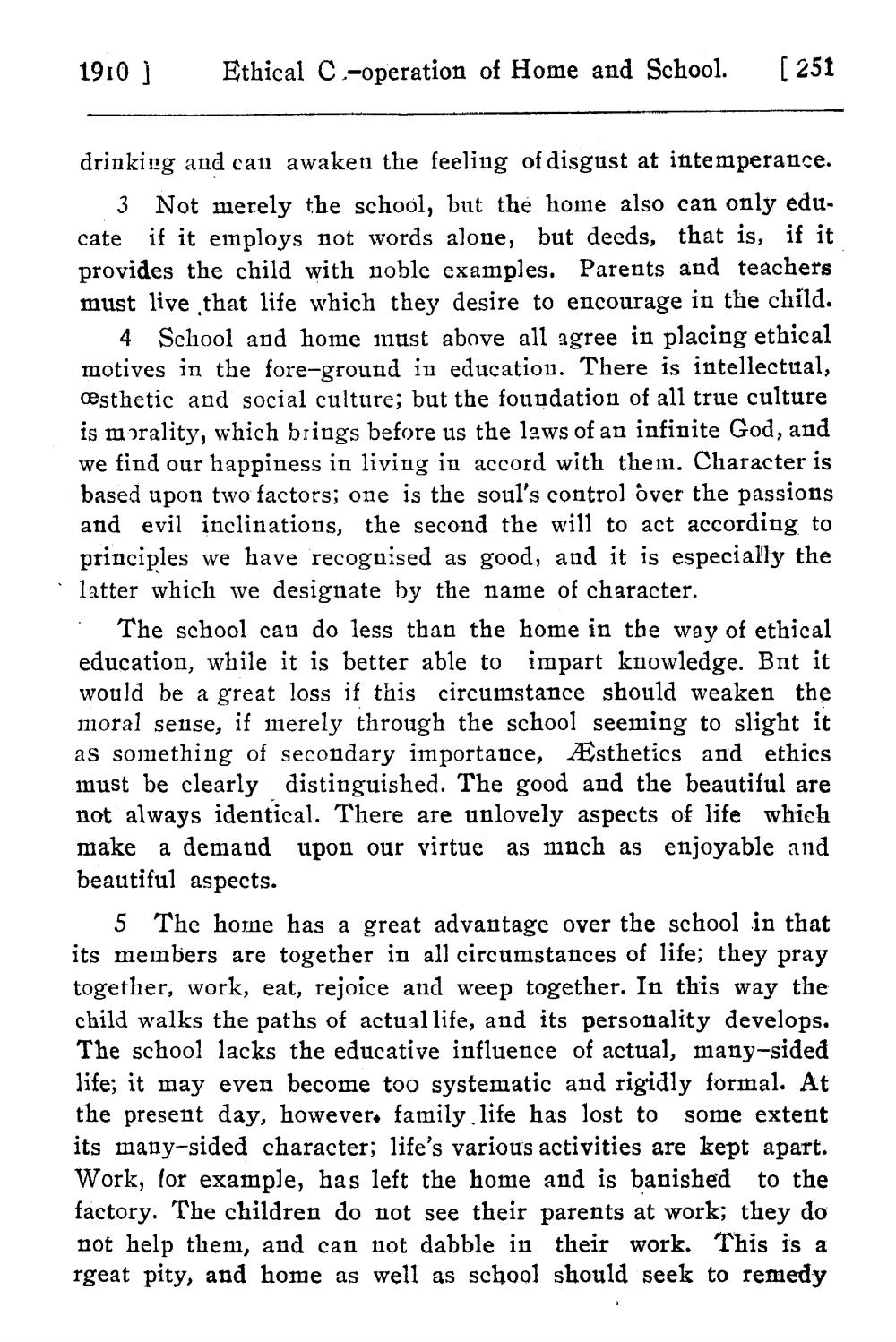________________
1910 ]
Ethical C.-operation of Home and School.
[251
drinking and can awaken the feeling of disgust at intemperance.
3 Not merely the school, but the home also can only educate if it employs not words alone, but deeds, that is, if it provides the child with noble examples. Parents and teachers must live that life which they desire to encourage in the child.
4 School and home inust above all agree in placing ethical motives in the fore-ground in education. There is intellectual, aesthetic and social culture; but the foundation of all true culture is morality, which brings before us the laws of an infinite God, and we find our happiness in living in accord with them. Character is based upon two factors; one is the soul's control over the passions and evil inclinations, the second the will to act according to principles we have recognised as good, and it is especially the latter which we designate by the name of character.
The school can do less than the home in the way of ethical education, while it is better able to impart knowledge. Bnt it would be a great loss if this circumstance should weaken the moral sense, if merely through the school seeming to slight it as something of secondary importance, Æsthetics and ethics must be clearly distinguished. The good and the beautiful are not always identical. There are unlovely aspects of life which make a demand upon our virtue as much as enjoyable and beautiful aspects.
5 The home has a great advantage over the school in that its members are together in all circumstances of life; they pray together, work, eat, rejoice and weep together. In this way the child walks the paths of actual life, and its personality develops. The school lacks the educative influence of actual, many-sided life; it may even become too systematic and rigidly formal. At the present day, however, family life has lost to some extent its many-sided character; life's various activities are kept apart. Work, lor example, has left the home and is banished to the factory. The children do not see their parents at work; they do not help them, and can not dabble in their work. This is a rgeat pity, and home as well as school should seek to remedy




